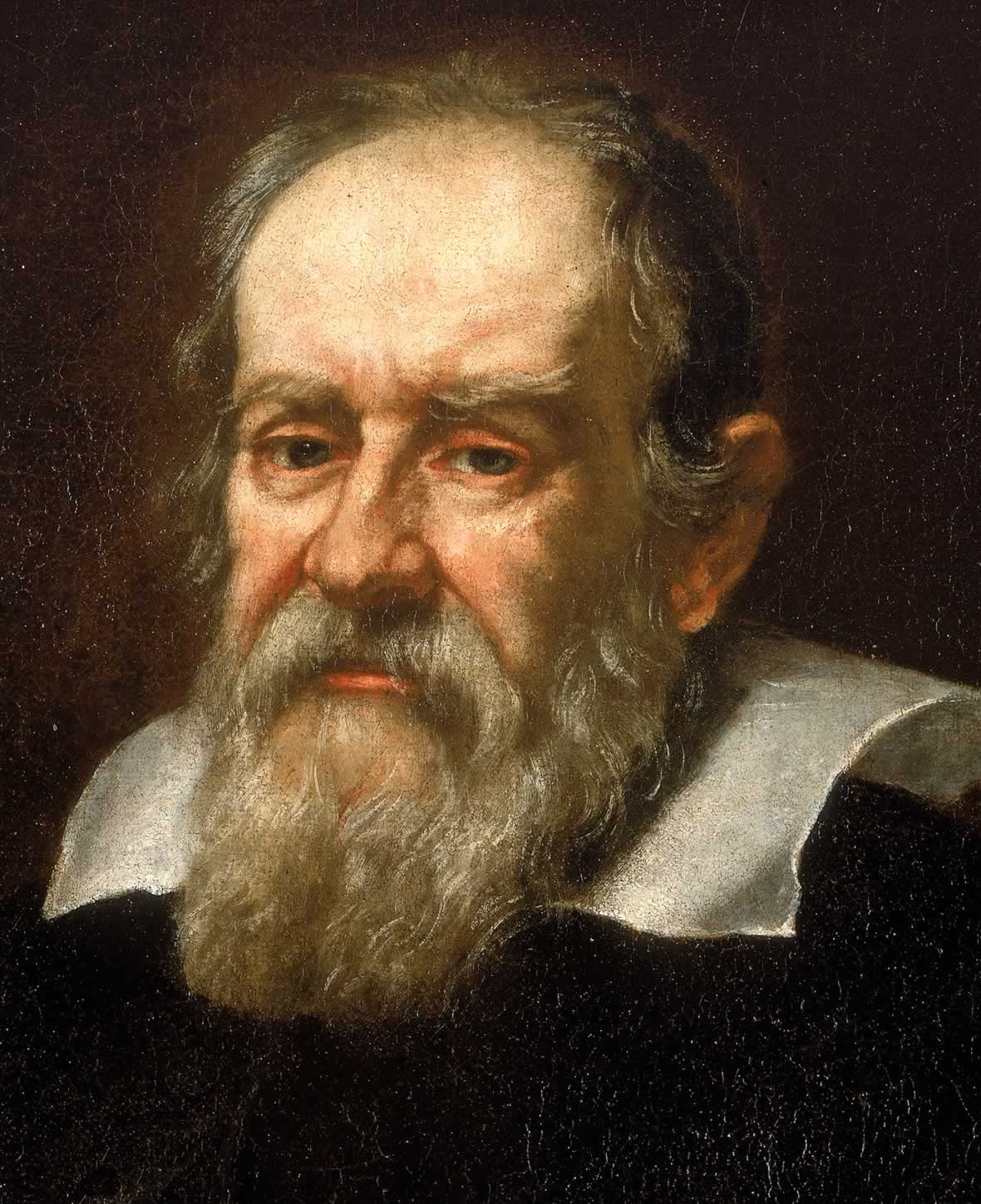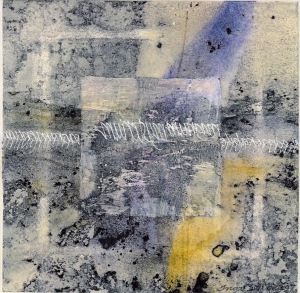

|
Achtung! Attention is a gift that we give to one another. Attention has the power to transform that which is attended. Every time we speak, it is well to obtain consent from the person listening, and acknowledge his attention with gratitude. Every time we listen, we can be aware of the power of the gift we give, and focus it to be most effective. We need not give our attention to those who abuse the gift. Most powerful and effective is the attention we shine on our own internal state. It is the way we may transform ourselves. — Josh Mitteldorf |
1 February 2009
|
|
All cultures are created equal, but some cultures are more equal than others We children of the European enlightenment think that respect for other cultures is a higher human value. But what do we make of cultures that don’t share this value? How does cultural democracy deal with cultures that are intolerant? When William Penn decreed that Toleration shall be the Law of the Land in the City of Brotherly Love, it was an act of political expediency. It was no more than a prescription for harmony in a colony that was uncomfortably diverse. Never for a moment did he entertain the idea that other religious philosophies were the equal of Quakerism. But as a diverse city became the capital of a new and more diverse nation, the need for toleration became deeper, and the need for cultural relativism deepened. Do you really believe that your values are as arbitrary as mine? Or is cultural relativism a stance that we adopt in order to feel morally superior to people who are narrow-minded and provincial? Last but not least, I should try to persuade others without being self-righteous or hypocritical. Nor is pomposity, railing at others, or calling them irrational or stupid the best tactic. Better to seduce via exemplary action. Know thy interlocutor. Successful persuasion may require any combination of ordinary human techniques: pleading, arguing, requesting, reasoning, illustrating, cajoling, praising, challenging, respecting, appeasing, sharing facts, bargaining, dining together, and so on. Alongside, I must remain flexible to revise my belief in my values, given new findings. I must also accept that, at times, open confrontation is unavoidable. That’s all there is—my belief in values that I think will lead to a better world, and trying to get others to see it my way on issues I care enough about. A sense of humor always helps. |
|
|
“A hurtful act is the transference to others of the degradation which we bear in ourselves.” — Simone Weil seamlessly merged her philosophy and her political activism. She died on a hunger strike while resisting the Nazi occupation of France, age 34. Today would have been her 100th birthday. Born into a secular Jewish family, she had a Christian epiphany, but also found resonance for her beliefs in Buddhism, Hinduism, and even the pagan gods of ancient Egypt. “Each religion is alone true, that is to say, that at the moment we are thinking of it we must bring as much attention to bear on it as if there were nothing else.” |
3 February 2009
|
|
Mendelssohn at 200 Felix Mendelssohn’s music has all the passion of other 19th century romantics, but none of the angst. His life was not seared by depression or wild, impossible affairs of the heart. He was raised in a household devoted to arts and the intellect. He played his first public concert at 9 on the piano, though he was never paraded about as a prodigy, and his childhood was protected by wise parents. He began as a teen to compose copiously and brilliantly, and completed two of his best-loved works at 16 (Midsummer Night’s Dream and the String Octet). He was happily married with five kids, and enjoyed family life. He painted and wrote copious essays and letters. He revived the reputation of J S Bach, hard as it might be for us to imagine an age that could not appreciate him. He worked too hard, and died at 38. Yesterday was his bicentennial. |
4 February 2009
|
|
Retreat of the grim reaper Telomeres are the closest thing our bodies have to an aging clock. Using a tail on the chromosome that gets a little shorter with each cell division, stem cells count how many daughter cells they’ve produced, and after they pass a threshold, the stem cells cease to produce. People of the same chronological age with longer telomeres have longer life expectancies and lower rates of heart disease. For several years, I have been eagerly following technical progress in the ability to rebuild telomeres in living cells using the enzyme telomerase, which is the body’s preferred method. Then, this week, a colleague emailed me a link to a patent for another method entirely. Just last week, a Stanford researcher was awarded a patent for a method of elongating telomeres in vivo using genetically engineered loops of DNA. |
5 February 2009
|
|
Too much theory I have come to believe that the whole world is an enigma, a harmless
enigma that is made terrible by our own mad attempt to interpret it as
though it had an underlying truth. A few observation and much reasoning lead to error; many observations
and a little reasoning to truth. |
6 February 2009
|
|
Prozac for grasshoppers Desert locusts avoid each other like the plague. Until they can’t any more — just too many of ’em. Then they get the message, and the message is serotonin. Once they detect a quorum of other desert locusts in the neighborhood, they change from green to splotchy army fatigues, and they begin their love fest. Now they’re attracted to one another like crazy. Can’t get enough of each other. They’ll follow other desert locusts anywhere, and do anything their brothers and sisters do, eat anything that they eat. The result is #8 from the Ten Plagues in the Book of Exodus. What we did for serotonin! |
7 February 2009
|
|
Dharma and Koan There are two expressions of the central message of Buddhism. Call them ‘liberal’ and ‘radical’. The liberal view is that life is full of unexpected twists and turns, so we shouldn’t become too attached to our good fortune, and (more important?) shouldn’t despair over our misfortune. The radical view is that all values, all judgments (good and evil), indeed all preferences are creations of our own minds and therefore ephemeral. The liberal view is hardly unique to Buddhism; it echoes old-fashioned wisdom that arises and gains its power from life experience. The radical view is pregnant with paradox. After all, if values are arbitrary, why should I meditate this morning, rather than eat sausage or rob a bank? When the mantle of authority is lifted not just from my preferences but also my most deeply-held values, where, then is the motivation to pursue spiritual practices, or to avoid harming others, or to regulate my activities in any way? But, if I cease to regulate my activities, won’t I then become dissolute and miserable, mired in exactly the desperate illusion that Buddhism seeks to dispel? Does Buddhism offer me no guidance whatever to inform the choices I must make? How can this be the rock of my belief system if it offers no support for my choice of life in preference to death? These questions have no resolution within the framework of human thought. Contemplation of their essential paradox leads out of language and thought, toward another relationship with self. — Josh Mitteldorf |
8 February 2009
|
|
Metaphor to Action Whether it is a speaker, taut on a platform, |
9 February 2009
|
|
Echappé ‘As soon as mindfulness, samma sati, occurs, we find that the mind acts no more; it stops like a witness to watch the inner state. When this watching becomes a constant habit, second nature, the cycle of reacting mindlessly to the environment is broken. In this moment of breakthrough, “seeing” or “awareness” occurs: crystal-clear perception of things as they are, of people, situations and things properly in perspective, free of discriminations, likes and dislikes. From new insight there follows right thinking, right speech and right action, relative and appropriate to each specific circumstance and instance. Then the question of what is absolutely right or absolutely wrong no longer arises.’ |
10 February 2009
|
|
A convergence of environmental imperatives and good business sense “Bigger power plants’ hoped-for economies of scale were overwhelmed by diseconomies of scale. Smaller units offered greater economies from mass production than big ones could gain through unit size. “Central thermal power plants stopped getting more efficient in the 1960’s, bigger in the 1970’s, cheaper in the 1980’s, and bought in the 1990’s.” — Amory Lovins, blogging for the New York Times, argues that decentralized power generation is going to be more reliable and more environmentally friendly—but it will be adopted because it’s just cheaper. |
11 February 2009
|
|
The greater human community As man advances in civilization, and small tribes are united into larger communities, the simplest reason would tell each individual that he ought to extend his social instincts and sympathies to all the members of the same nation, though personally unknown to him. This point being once reached, there is only an artificial barrier to prevent his sympathies extending to the men of all nations and races. If, indeed, such men are separated from him by great differences in appearance or habits, experience unfortunately shews us how long it is, before we look at them as our fellow-creatures. Sympathy beyond the confines of man, that is, humanity to the lower animals, seems to be one of the latest moral acquisitions. — Charles Darwin, 200 years old today |
12 February 2009
|
|
Only if Love Should Pierce You Do not forget that you live in the midst of the animals, |
13 February 2009
|
|
The Great Love Something remarkable happened to me this year. I started loving everyone. Everyone. The hundreds of people I know and the billions I don’t. I’m not exactly sure when I began loving everybody, but I do know when I first realized it: I was writing a short bio for my website. I composed a sentence or two about my work and family—the usual stuff. And then what I really wanted to say popped into my mind: My heart is full of love for you. — Tara Mohr |
14 February 2009
|
|
Pursue joy; eschew comfort It’s in the courage writ small, repeated ten thousand times that we create ourselves. — Josh Mitteldorf |
15 February 2009
|
|
Why am I me? Before you were born, you were in a large room, laughing and dancing with a thousand other souls. The birth angel came into the room and held up a card. Everyone in the room could instantly read the card and understand its contents. The card contained your birth and death, all the experiences and choices of your lifetime. Someone said, ‘Ooo — look what happens to her when she is 5.’ Someone else said, ‘I did that stuff last time,’ and a third: ‘I think I’ll pass on this one.’ After a brief silence, you said, ‘I’ll take it!’ and a great cheer rose up through the crowd. You followed the angel down a long hall, a door opened, and you forgot the crowd, the cheers. You began to play your part, and pretended to be alone. — paraphrased from Brian Arnell |
16 February 2009
|
|
A theory of everything, comprehensible only to space aliens An interesting possibility, which I think should not be dismissed, is
that a “true” fundamental theory exists, but that it may just be too
hard for human brains to grasp. A fish may be barely aware
of the mdium in which it lives and swims; certainly it has no
intellectual powers to comprehend that water consists of interlinked
atoms of hydrogen and oxygen. — Martin Rees |
17 February 2009
|
|
The pursuit of happiness “What do you actively do each day that contributes to the pursuit of
happiness in your life? Are you mindful and purposeful as you pursue
happiness, or do you rarely give it a second thought?” Einstein once said, “No problem can be solved from the same level of consciousness that created it.” It seems to me that if “We the People” could raise our level of consciousness we would see what is responsible for unhappiness. We would not frantically “pursue happiness” much the way an addict “pursues” their drug. We would begin the difficult but magnificently gratifying steps of creating a healthier world so that happiness is a natural result, not an external target we must individually pursue. — Amy Lee Coy, blogging at FromDeathDoIPart |
18 February 2009
|
|
from the Manifesto of Surrealism (1924) Tant va la croyance à la vie, à ce que la vie a de plus précaire, la vie réelle s’entend, qu’à la fin cette croyance se perd. L’homme, ce rêveur définitif, de jour en jour plus mécontent de son sort, fait avec peine le tour des objets dont il a été amené à faire usage... Cette imagination qui n’admettait pas de bornes, on ne lui permet plus de s’exercer que selon les lois d’une utilité arbitraire ; elle est incapable d’assumer longtemps ce rôle inférieur et, aux environs de la vingtième année, préfère, en général, abandonner l’homme à son destin sans lumière...Chère imagination, ce que j’aime surtout en toi, c’est que tu ne pardonnes pas... Ce n’est pas la crainte de la folie qui nous forcera à laisser en berne le drapeau de l’imagination. Le procès de l’attitude réaliste demande à être instruit, après le procès de l’attitude matérialiste...l’attitude réaliste, inspirée du positivisme, de saint Thomas à Anatole France, m’a bien l’air hostile à tout essor intellectuel et moral. Je l’ai en horreur, car elle est faite de médiocrité, de haine et de plate suffisance... Je prends, encore une fois, l’état de veille. Je suis obligé de le tenir pour un phénomène d’interférence....il ne semble pas que, dans son fonctionnement normal, il obéisse à bien autre chose qu’à des suggestions qui lui viennent de cette nuit profonde dont je le recommande...il donne par là la mesure de son subjectivisme, et rien de plus... Tranchons-en : le merveilleux est toujours beau, n’importe quel merveilleux est beau, il n’y a même que le merveilleux qui soit beau. — — — So strong is the belief in life – in what is most
fragile in life, which is to say, the real life – that in the end this belief is
lost. Man, that inveterate dreamer, daily more discontent with his
destiny, has trouble maintaining perspective on the objects with which
he has been led to concern himself... |
19 February 2009 |
|
Underwater camouflage I thought camouflage was genetically programmed into the skin on a one-shot basis. The octopus can look at his surroundings and paint a pattern onto his skin to match. Watch! David Gallo at the TED conference in Monterey, CA (It’s at the end of the video, but I don’t think you’ll mind what comes before.) |
20 February 2009
|
|
“Music is the best means we have of digesting time.” In a garden shady this holy lady Blonde Aphrodite rose up excited, Blessed Cecilia, appear in visions — W. H. Auden, born this day in 1907 |
21 February 2009
|
|
The individual and the community In my youth, I was a staunch advocate of a political philosophy I can
now label as libertarian. I believed that individual development and
self-expression were primary, and the only legitimate function of the
polity was to make individual lives easier, and thus to enhance
opportunities for individual development. — Josh Mitteldorf |
22 February 2009
|
|
For the Unknown Self So much of what delights and troubles you It is a self that enjoys contemplative patience It presides within like an evening freedom It dwells in a strange, yet rhythmic ease Were it to break forth into day, It has the dignity of the angelic ~ John O’Donohue |
23 February 2009
|
|
Opportunity in crisis ‘From the aftermath of wars...spring the opportunities for change...capitalism is war...For the left it should be a time of unrivaled opportunity. ‘Take for example the shopping mall...They represent privatized space, the collapse of the public realm...Today’s failed or failing malls can be converted to mixed-use, with residential housing, public spaces and constructive social functions ‘Opportunity is there, to be seized from the jaws of capitalism’s shattered reverses. This is a chance richer than the opportunity offered and annulled in the mid-’70s. Circumstances will in all likelihood push Obama’s government to the left, just as they did to FDR’s when orthodoxy failed. The left should not be shy about pressing the challenge out of some misguided notion of preserving a polite progressive consensus. From malls to the economy’s commanding heights, let the Reconquest begin.’ —
Alexander Cockburn in The Nation
this week |
24 February 2009
|
|
In praise of silence ‘Remember not only to say the right thing in the right
place, but far more difficult still, to leave unsaid the
wrong thing at the tempting moment.’* “We are masters of the unsaid words, but slaves of those we let slip out” “Courage is what it takes to stand up and speak; courage is also what it takes to sit down and listen.” “Too often the strong, silent man is silent only because he does not know what to say, and is reputed strong only because he has remained silent.” * far more difficult if you’re as articulate and as self-centered as Churchill. For the rest of us, this might be quite an achievable ambition. |
25 February 2009
|
|
Reinventing the sacred Part of reinventing the sacred is to heal...injuries that we hardly know we suffer. If we are members of a universe in which emergence and ceaseless creativity abound, if we take that creativity as a sense of God we can share, the resulting sense of the sacredness of all of life and the planet can help orient our lives beyond the consumerism and commodification the industrialized world now lives, heal the split between reason and faith, heal the split between science and the humanities, heal the want of spirituality, heal the wound derived from the false reductionist belief that we live in a world of fact without values, and help us jointly build a global ethic. These are what is at stake in finding a new scientific worldview that enables us to reinvent the sacred. ‘Perhaps my most radical scientific claim is that we can and must break the Galilean spell. Evolution of the biosphere, human economic life, and human history are partially indescribable by natural law. This claim flies in the face of our settled convictions since Galileo, Newton, and the Enlightenment.’ (If anyone but Stu Kauffman had said it, we’d have to discount it as counter-scientific propaganda from the realm of superstition.)
|
26 February 2009
|
|
Great Mystery ‘I’m a reviser. As it turned out, O Magnum Mysterium was one of the most difficult pieces for me to write, even though it is a very direct piece. That was the difficulty in writing, or composing, the piece, because I kept whacking away and eliminating other thoughts that would come into the composing process that were extraneous, that were perhaps too complicated for this particular setting. On Lux Aeterna and so many of my works, I like the immediacy — to draw my listener in immediately, to hold their attention, to transport them, to do something to do them on some level, whether it’s excite them, or move them, or elate them, or whatever. But I also want my music, upon careful analysis, to be peeled back like an onion, like one can do with the great composers that I admire, such as Brahms...However, on the O Magnum Mysterium I didn’t want the listener to actually peel back anything! It’s a very short piece, very direct, and I want to eliminate anything that would stand in the way of that.’ — from a 1999 interview with Mort Lauridsen, born this day in 1943. |
27 February 2009
|
|
Our hearts, our intellect, our love Since we are what we are, what shall we be — Stephen Spender, born this day in 1909 “All one can do is to achieve nakedness, to be what one is with all one’s faculties and perceptions, strengthened by all the skill which one can acquire, and then to stand before the judgment of time.” |
28 February 2009 |


















 There’s an octopus front and center in this picture.
There’s an octopus front and center in this picture.






